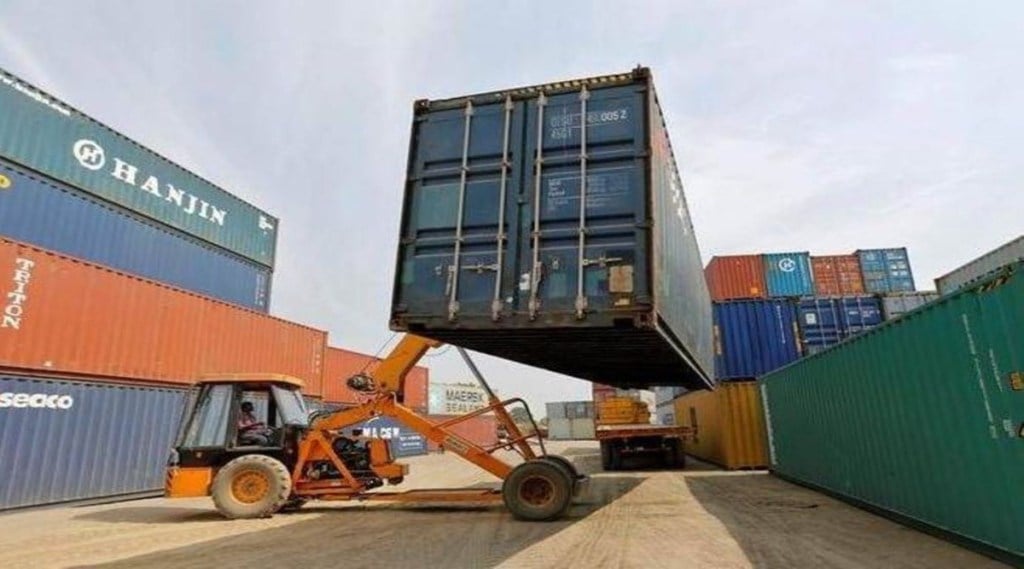As India and Africa weigh the feasibility of a broad trade and investment agreement, the potential of scaling up bilateral commerce remains huge but negotiators have to traverse substantial challenges as well to clinch a win-win deal, trade sources and analysts told FE.
Official sources said the complementary nature of the India-Africa trade engagement is hard to miss. India imports inputs and intermediate goods in large volumes from Africa, while it ships out mostly finished products to the continent. There are opportunities for investments by Indian companies in Africa, especially in the commodity sector. The strategic relations between India and Africa, where China has already consolidated its position, is also important.
At the same time, there are challenges of negotiating with the African Union, many of whose members are still poor and may not necessarily have common ambitions in several aspects of trade, some analysts said. The intra-regional disparity within the African Union is still stark and will make the job of Indian negotiators difficult.
In 2021, African nations launched the African Continental Free Trade Area (AfCFTA) with the objective of creating a single African market for the free movement of goods, services, labour, and capital, and increase intra-African trade. “AfCFTA may be able to provide Indian firms and investors certain opportunities to tap into a larger, unified, and robust African market,” said Tanu M Goyal, senior fellow at ICRIER. The AfCFTA has its own secretariat in Accra, which will likely be instrumental in negotiations with India for any trade or investment pact.
David Sinate, chief general manager (Research & Analysis) at Exim Bank, said AfCFTA is expected to push up intra-regional trade from 16% of Africa’s total trade to 52% in the next five years, with removal of tariffs on 90% of goods. “It would thus be the right time in stepping up and integrating India’s engagements in Africa. Manufacturing sub-sectors such as textile, apparel, leather, wood and paper, vehicle and transport equipment, electronics and metals are expected to benefit the most from the AfCFTA reform,” Sinate said.
While India exported goods worth $40 billion to Africa in FY22, its imports were higher at $49 billion, partly due to oil purchases from countries like Nigeria.
Addressing a conclave on India-Africa Growth Partnership late Tuesday, commerce and industry minister Piyush Goyal stressed the intent to forge a trade pact with Africa. This is because the economic outlook, in the long run, “is going to be promising for both India and Africa, because this is where the markets and opportunities are present”, he said.
In the pre-Covid year of 2019, over 60% of India’s imports from the African Union comprised fuels, mainly from Nigeria, Angola and Algeria; this was followed by precious stones and glass (about 20%) from Ghana, South Africa and Botswana. About a fifth of India’s exports to the continent were petroleum products and over 18% were pharmaceuticals. A trade agreement will enable seamless movement of these products at zero or concessional duties, helping both the sides.
Similarly, as ICRIER’s Goyal points out, between January 2015 and May 2021, about $23.3 billion has been invested by Indian firms in Africa. Financial services, telecommunications services, and mining sectors in Africa are among the largest recipients of FDI from India. Some of the large Indian investors in Africa are ONGC Videsh, Bharti Airtel, Vedanta, Shapoorji Pallonji Infrastructure Capital Company, GMR Infrastructure, and Sun Pharmaceutical Industries.
“The AfCFTA is thus likely to create opportunities for India with Africa by integrating it with global value chains, and within Africa by fostering trade linkages with different countries of the continent,” she said. “However, broadly, there are three crucial challenges in Africa: Infrastructural bottlenecks; language and cultural challenges; and access to finance,” she added.
The renewed focus on Africa comes at a time when New Delhi looks to further strengthen its trade with relatively small and medium-sized economies, as key markets like the US and the EU are staring at a huge growth slowdown. African nations, too, will benefit hugely from this engagement, as India’s trade and investments in the continent are not designed to lead the countries into “debt trap”, an official source had said earlier, in a veiled reference to China, which has often been accused of resorting to unfair trade and investment practices.

